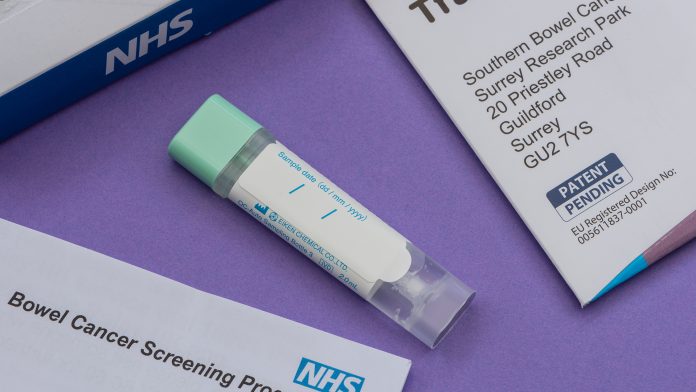
The NHS has taken a groundbreaking step in preventative healthcare by offering routine bowel cancer screening to thousands of individuals with Lynch syndrome.
Lynch syndrome, an inherited genetic condition, elevates the risk of various cancers, including bowel, ovarian, and pancreatic.
Bowel cancer screening has proven effective in preventing bowel cancer in 40-60% out of 100 individuals with Lynch syndrome.
This initiative marks a global first in the healthcare sector, aiming to mitigate the occurrence of certain cancers and detect bowel cancer at earlier stages when treatment is more effective.
Targeted screening for Lynch syndrome patients
Under the NHS Bowel Cancer Screening Programme, individuals with Lynch syndrome are now being invited for bowel surveillance every two years.
This screening involves assessments by specialist teams and colonoscopies to check for polyps and signs of bowel cancer.
Approximately 10,000 individuals in England are currently registered with Lynch syndrome and are being encouraged to participate in the screening programme.
Despite an estimated 175,000 individuals in England living with Lynch syndrome, only 5% are aware of their condition.
Lynch syndrome predisposes individuals to multiple cancers and often leads to diagnoses at younger ages. Recognising the importance of early detection, the NHS has developed a simple blood test to identify the syndrome, facilitating timely interventions and preventive measures.
The initiative is expected to result in the early diagnosis and treatment of thousands of additional cases of cancer. The convenience of local screening centres aims to encourage participation among eligible individuals.
Advancements in genetic testing
The NHS has also bolstered its genetic testing programme, ensuring that almost all individuals diagnosed with bowel and endometrial cancer undergo initial tests for Lynch syndrome.
This represents a significant increase from 47% in 2019 to 94% on average between 2021-2023. A diagnosis of Lynch syndrome not only informs personalised cancer treatment but also extends testing opportunities to family members, aiding in early detection and intervention.
Supporting preventive measures
Relatives of those diagnosed with Lynch syndrome are encouraged to undergo regular testing and consider preventive options such as aspirin therapy or risk-reducing surgeries.
While Lynch syndrome itself does not directly cause cancer, its genetic alterations increase the likelihood of abnormal cell growth, raising the risk of various cancers, including bowel, prostate, and endometrial cancers.
The NHS’s proactive approach to Lynch syndrome screening exemplifies a significant leap forward in preventative healthcare, offering hope for improved outcomes and reduced cancer burden among affected individuals and their families.






















